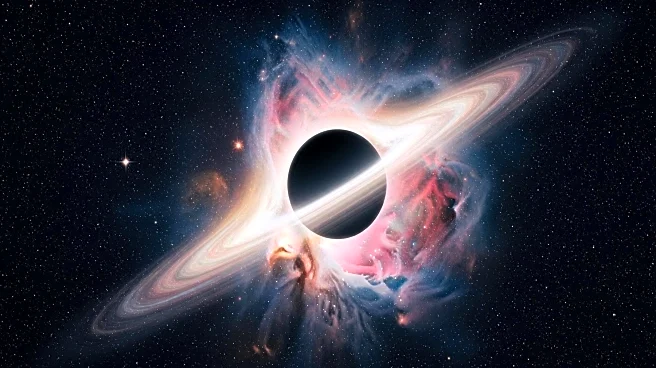What's Happening?
A new theoretical model suggests a 90% probability of detecting an exploding primordial black hole within the next decade. This prediction is based on the concept of Hawking radiation, where black holes emit thermal radiation as they lose mass, eventually leading to an explosion. Smaller black holes are more likely to be detected during these explosions due to their rapid mass loss. The model proposes that if primordial black holes possess a small, dark electric charge, their explosions could occur more frequently, about once every ten years. Such explosions may release particles like electrons, quarks, Higgs bosons, and potential dark matter candidates. The study, published in Physical Review Letters, indicates that current telescopes are capable of observing these events, which could confirm the existence of primordial black holes formed shortly after the Big Bang.
Why It's Important?
Detecting an exploding primordial black hole would be a significant breakthrough in understanding the early universe and particle physics. It would provide direct evidence of primordial black holes, which are theorized to have formed shortly after the Big Bang. This discovery could enhance our understanding of Hawking radiation and the fundamental particles that constitute the universe, including potential dark matter candidates. The ability to observe these explosions with existing telescopes would also validate current theoretical models and open new avenues for research in cosmology and astrophysics.
What's Next?
Scientists are expected to continue monitoring the skies with current telescopes to detect these rare events. If an exploding primordial black hole is observed, it would likely lead to further studies and potentially new technologies to explore the implications of such discoveries. The confirmation of primordial black holes could also influence theoretical models of the universe's formation and evolution, prompting revisions in our understanding of cosmic history.











